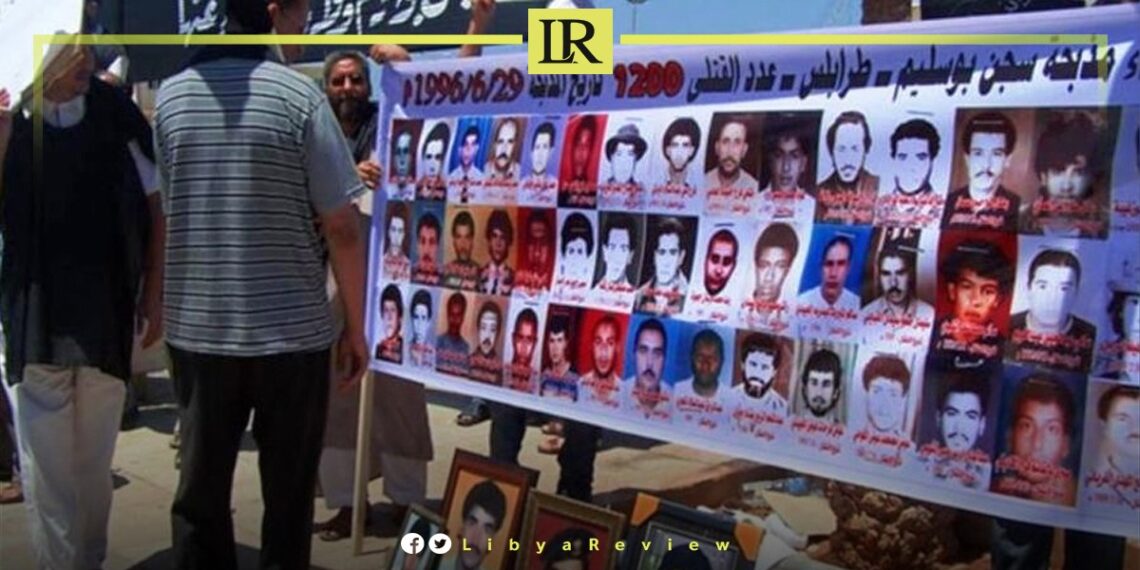In a recent declaration, the Association of the Martyrs of Abu Salim Massacre urgently called upon the national judiciary to expedite the proceedings of the case. They seek swift judgments to ensure justice.
Following the second meeting of the Transitional Justice Movement, the victims’ families issued a statement demanding that no suspects in the case be released until a final decision is reached. They advocate for the full implementation of the 2013 Transitional Justice Law to prevent the recurrence of such heinous crimes and to ensure that perpetrators do not escape punishment.
Furthermore, the association expressed its outright rejection of the Presidential Council’s actions that exclude the victims’ families from participating in national reconciliation dialogues. They emphasise that involving all conflicting parties, especially the victims’ families, is crucial for a genuine national dialogue. These families hold legitimate rights protected by law and tradition.
The families also called for support of the Transitional Justice Movement, reiterating their commitment to the principles and goals of the February 17th Revolution, which include freedom, justice, and adherence to the rule of law. This appeal underscores the ongoing struggle for accountability and reform in the aftermath of the Abu Salim Massacre, highlighting the critical need for inclusive dialogue and comprehensive justice in the healing process.
The Abu Salim prison massacre, one of the most tragic events in Libyan history, occurred in 1996 and involved the killing of more than 1,200 prisoners. This event has been a focal point for demands for justice and accountability in Libya, particularly among the families of the victims.
The massacre started following an inmate protest against the harsh conditions within the prison. Negotiations between the prisoners and Libyan officials, including Abdullah Sanussi, Muammar Gaddafi’s brother-in-law and intelligence chief, initially led to some promises for improvement. However, the situation escalated dramatically when security forces began shooting, leading to the deaths of a large number of inmates over the course of two days.


